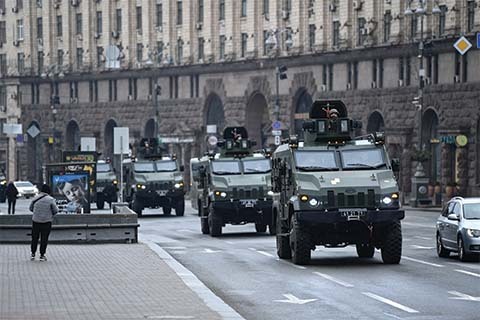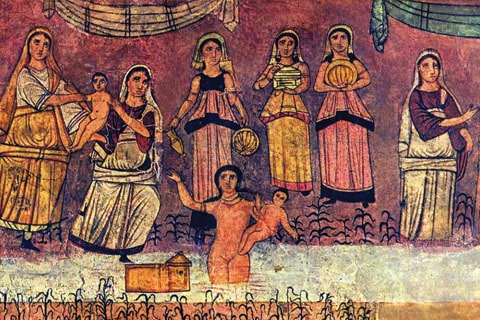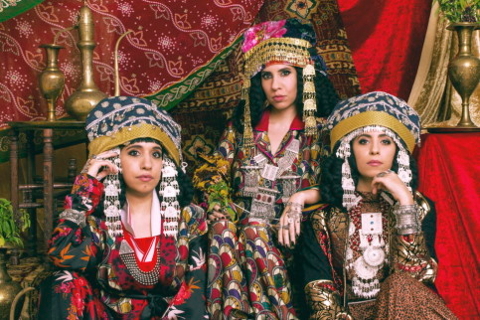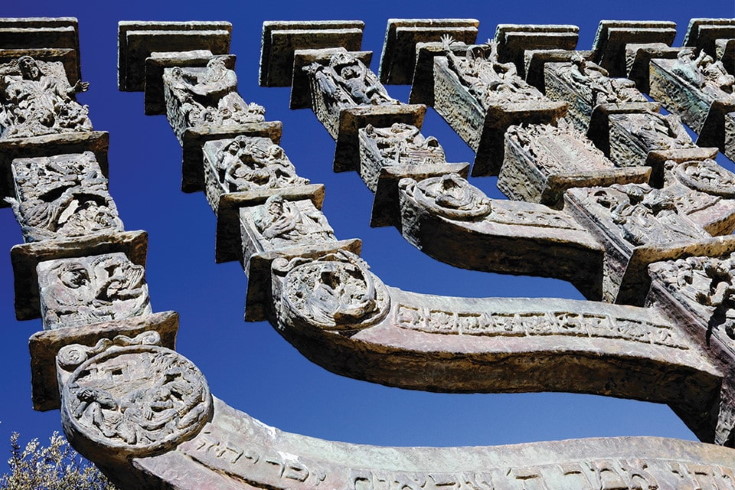Let Ukrainian Refugees Come to Israel
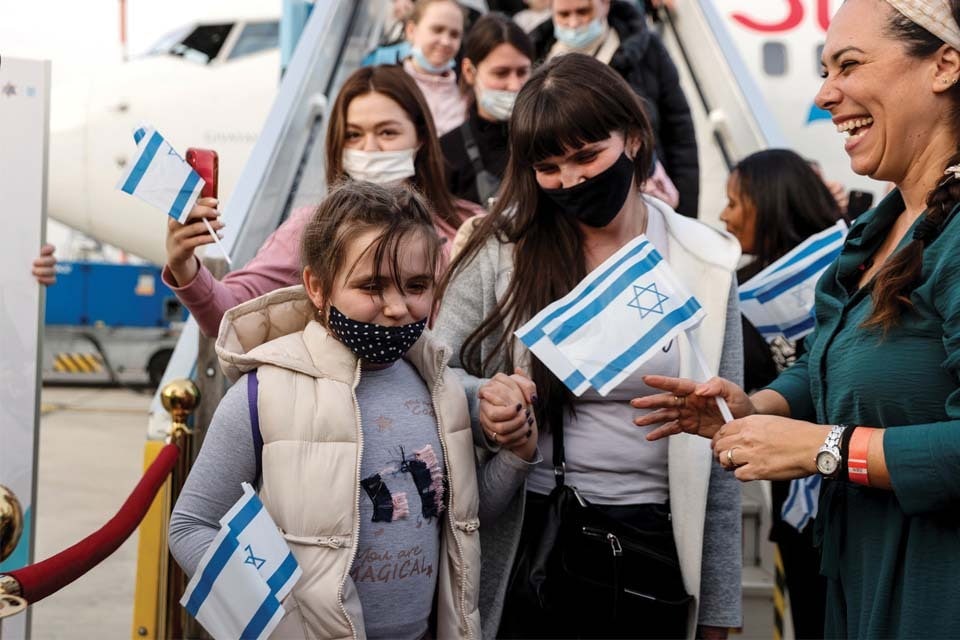
Ukrainian refugees receive Israeli flags at Ben Gurion International Airport, near Tel Aviv, Israel, In March.
The opinions expressed in this article are the author's and not necessarily those of Brandeis University.
March. 31, 2022
By Rabbi Ron Kronish '68
In Israel right now, a fierce debate is raging over how many Ukrainian refugees the country should admit.
Tens of thousands of them are arriving. Many are not Jewish and therefore not covered by the Law of Return, which says anyone of Jewish descent or with a Jewish spouse can become a citizen.
There are some who worry admitting non-Jews will dilute the Jewish character of the country. Others argue, having been refugees ourselves, we have a moral obligation to accept those fleeing the war in Ukraine.
As we approach Passover, we as Jews must ask ourselves: Are we open to receiving refugees without fear? Are we ready to reach out to them with love and compassion?
I feel we can look to the Seder for instruction.
Following the blessing over the food after the meal, we open the door for Elijah, the harbinger of peace and hope for a more harmonious future.
But in the Middle Ages, the creators of the Haggadah added some very strange verses to the Seder service from the book of Psalms that run completely counter to this idea. The first verse states, "Pour out our fury on the nations that do not know you, upon the kingdoms that do not invoke their name, for they have devoured Jacob and desolated his home."
I never understood the full meaning of this until I read a fascinating commentary by the Jerusalem-based artist and calligrapher David Moss in the beautiful "Moss Haggadah."
Moss explains that it is on the Seder night when God guards the Jewish people with special watchfulness. It is a night of safety. We may leave our doors unlocked; we may even open them wide. The open door is a sign of total security.
On the other hand, there is the problem of fear. For hundreds of years, Passover was a time of terror for Jews, with Christians suspecting them of committing foul and horrible deeds during the Seder.
Accordingly, the doors of Jewish homes were kept open so that Christian neighbors could see that no corpse was hidden under the table and that Jews were not drinking the blood of Christian children. The open door was a sign of terror.
Moss weaves these two interpretations together to talk about "the doors of paradox":
These two almost contradictory explanations for the open door perfectly capture the ambivalence, the paradox, of the Jew in the non-Jewish world. We have nothing to fear; we have everything to fear. We are a chosen people; we are a despised people… The door is the interface, the threshold, the meeting place between the inner Jewish worlds and the outer non-Jewish world.
In another Haggadah I have used for many years, "A Different Night" by Noam Zion and David Dishon, I found an alternative interpretation of the ritual of opening the door for Elijah. Instead of "pour out your wrath," it begins with "pour out your love":
Pour out your love on the nations who have known you and on the kingdoms who call upon your name. For they show loving-kindnesses to the seed of Jacob and they defend your people Israel from those who would devour them alive. May they live to see the sukkah of peace spread over your chosen ones and to participate in the joy of your nations.
Zion and David discovered this addition in a manuscript from Worms from 1521. It is attributed to the descendants of the great Jewish scholar known as Rashi and may have symbolized the welcoming in of righteous gentiles who saved Jews during the Middle Ages.
The idea of extending our love and compassion to refugees, which emanates from this passage, is as relevant now as it was when it was written a few hundred years ago, if not more so.
During Passover, our festival of freedom, it is time for us to be righteous Jews who show loving-kindness to strangers who are suffering. On this holiday, when we retell the story of our people's journey from slavery to freedom, we should open our doors widely and without fear to other human beings who are suffering persecution and exile from their homeland, both in Israel and in the Diaspora.
If we are genuinely open to the world — including in Israel — we have to be ready to take in more refugees and not keep imposing limits and restrictions. In the spirit of opening the door for Elijah, this would be the moral thing to do now.
